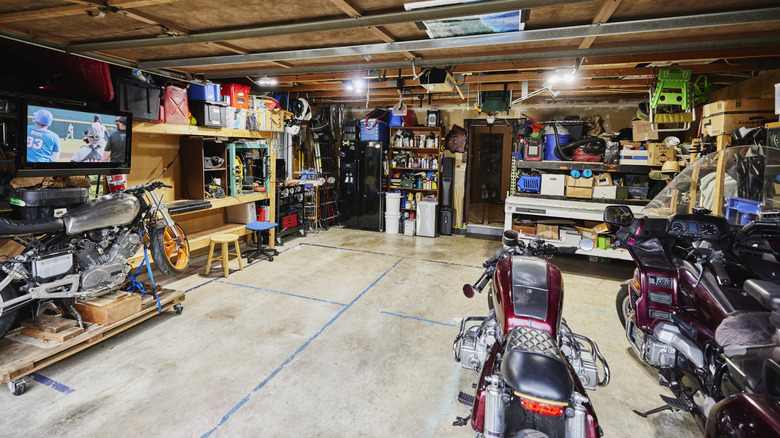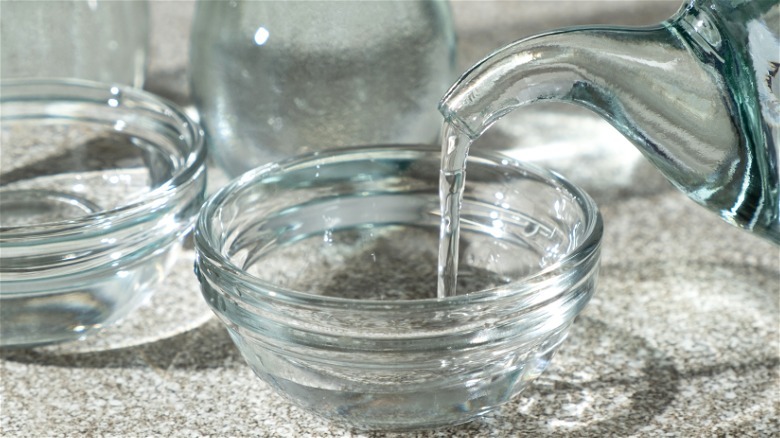Avoid Stinky Garage Smells With The Easy DIY Hiding In Your Kitchen
A garage in a house is an important and versatile area. Primarily used as the space to securely park vehicles, a garage can also function as a multipurpose area for storage, gym, workshops, a hobby space, and even as an office. There are, however, times when a garage will smell bad, which could be due to several reasons. Common causes of garage odors include moisture, cleaning chemicals, and decomposing organic materials. Additionally, stored paint and automotive fluids can release fumes that cause foul smells. A simple and effective DIY to neutralize them and refresh the scent of a garage is to use a bowl of the white vinegar hiding in your kitchen.
White vinegar is a popular cooking ingredient used for salad dressings, meat and fish marinades, sauces, and baked food. In addition, its acidic properties make it ideal for pickled food and tenderizing meats. Outside of cooking, white vinegar can be a versatile cleaning tool for countertops and other surfaces in the home.
White vinegar gets its deodorizing properties from its acidic composition, where its 4% to 7% acetic acid is enough to neutralize or break down odor-causing molecules. It works due to the acid reacting with alkaline compounds coming from the source of the smell. Finally, because of its antimicrobial ability, which can harm and kill bacteria, white vinegar helps to remove the smells that are caused by them.
A simple DIY to deodorize a garage
To ensure the white vinegar hack works effectively, it is best to first clean and organize your garage and remove all unnecessary items. After removing the clutter, clean your garage floor to make it look like new using a vacuum and wet mop, and repeat the floor cleaning at least once annually. Then, remove any smells using vinegar. Half-fill several bowls or small open plastic containers with distilled white vinegar. Place these in humid and poorly ventilated areas of the garage to counteract the smell of any molds or fungi.Put them where they won't be knocked over, as vinegar spills can eat into concrete garage floors if left for too long.
Replace the bowls of vinegar daily for ongoing odors. If you need to tackle tougher garage smells, you can use also use white vinegar as a deodorizing spray by filling an empty spray bottle with it and a few drops of essential oils. Use this spray on corners, surfaces, and hard-to-reach areas in the garage, and allow it to dry. Next, use the vinegar as a disinfectant wipe by spraying the surfaces of the garage, including the floor, and using a rag or sponge to wipe after.
A clean garage is a must to prevent the growth of mildew and mold and avoid potential health risks. While it may seem a minor annoyance, foul smells can be an indication of more serious problems. Mold and mildew, plumbing issues, or even dangerous gas leaks are odors that should be addressed immediately, and using vinegar is one of several genius tricks to deodorize your smelly garage.

